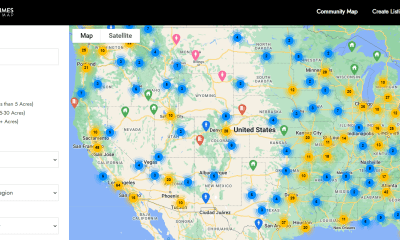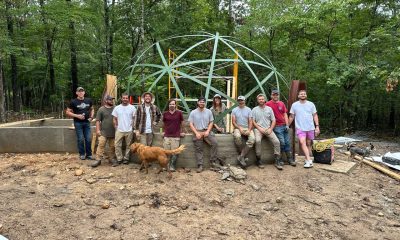Business
Earn Money. Don’t Make It.
How changing one word can change your business

Words matter. How we use words matters. Replacing a single word in a sentence, or a thought, can result in an entirely different ending point. Today we’ll focus on what I think is the most important word in business, and how replacing it with another will change your entire outlook.
When we use the phrase “I made money”, we are lying. Unless you own a printing press specifically for creating money, use a special blend of top secret woven paper and fabric, use special inks and dyes, etc, and you literally create money, you didn’t make anything. Using this phrase can lead to subconscious shifts in how we not only conduct ourselves in our business environment, but every other area of life as well. It might seem trivial, but words matter more than we know.
When we say “I made”, we are taking full credit for a creation. Over time this can, and often does, lead to hyper inflation of the ego. The power of creation is something to covet. Desiring to create, or make, isn’t bad in itself. After all, we are here to honor God by creating. It’s what we direct that desire towards which can lead us down very bad paths. When we “make” money, we subconsciously train ourselves to believe we have the power to create wealth. We don’t. And once that pattern of thinking takes hold of you, it will expand out to the point of losing touch with nature, truth, logos, and reality itself.
The way to avoid this crucial misstep is to rephrase it, and instead say “I earned money”. Changing “made” to “earned” removes the idea that you created the money. That is important. Saying you earned money is not a lie. If you provided a service or sold a product, you did in fact earn that money. “Made” comes with the connotation that you are so powerful that you create from nothing. Only God can do that. “Earned” comes with the connotation that you worked hard to acquire, which is exactly what you did.
When we enter a job working for someone else, we don’t make our paychecks. We earn them. We enter into a contract with an employer. The employer agrees to give you an amount of money for either a job, or per hour that you work. You willingly choose to accept these terms, knowing that in order to obtain that paycheck at the end of the week you will need to work hard to earn it. Nowhere in there did you make money. This doesn’t magically change as soon as we create our own business. I don’t make money selling wood products. I earn money by making wood products. There’s a very big difference between those two, and the latter will keep you humble and focused on whatever it is you do.
A good exercise to see how important words are is to swap the words “made” and “earned” in everyday phrases, and see how ridiculous they sound. For instance, when I go into the shop, I make a cutting board. I don’t earn a cutting board. When you graduate college, you earned your degree. You didn’t make a degree. Your kids run up to you, paper in hand, exclaiming that they made you a picture. They don’t yell “DADDY I EARNED THIS FOR YOU!”.
Save the word “made” for when you’re actually creating something. Use the word “earn” when you’re working for an end goal. In business, this end goal is ultimately money. I work hard every day to earn money to feed my family and keep a roof over their heads. I do so by making things and then selling them. And at the end of the day, I have no false sense of superiority, no inflated ego, and I haven’t convinced myself that I’m King Midas. I am tired, I am sore, and I feel grateful knowing that God allowed me another day of hard work so I could earn the money which I used to put food on the table. This also keeps my creativity focused solely on my craft, rather than on the acquisition of money. Instead of thinking about how I will acquire money, I think of what product I can create with wood that people will not only like, but will serve a purpose. I focus entirely on putting my energy into creating the product itself, so that when I hear the chime of a sale notification I know that my hard work paid off. I earned that sale.
Until next time Bears! Onward!
-Woodshop Bear
FB: Little Bear Woodshop
IG: @littlebearwoodshop
www.littlebearwoodshop.com
Business
3000 Members In Our Business Group!: This Week On Our Community App!
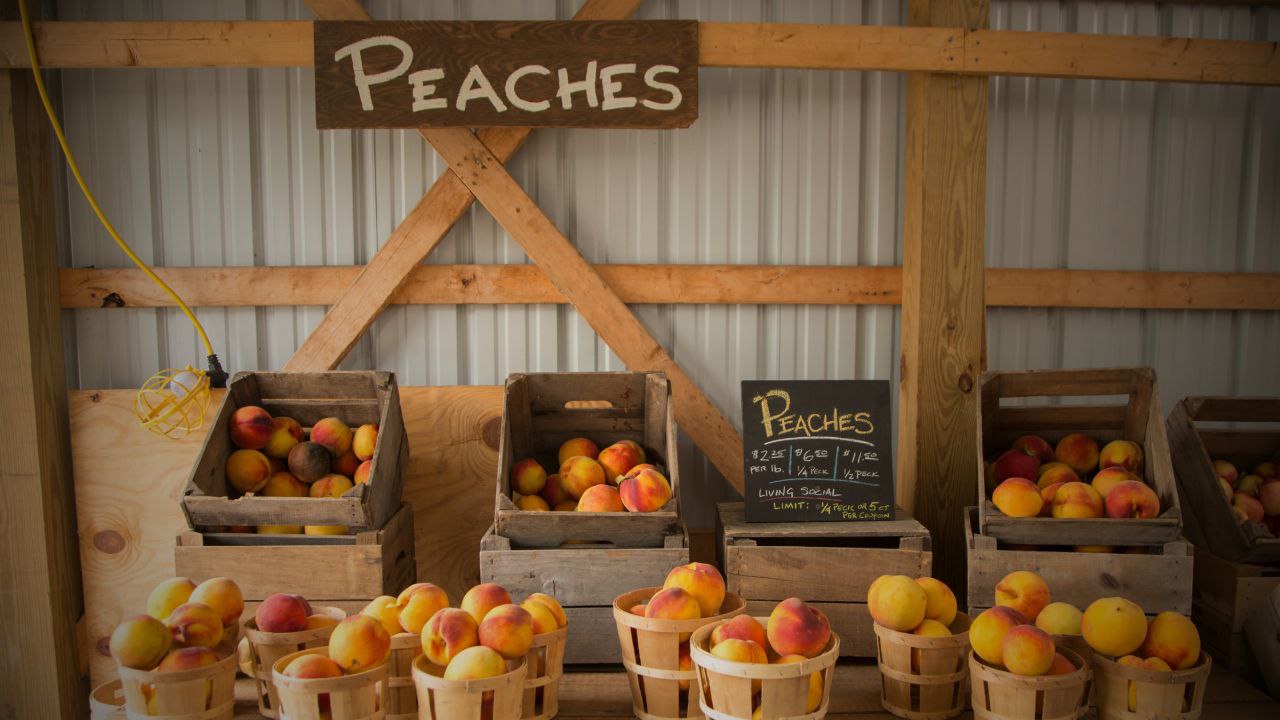
Our thriving business group hosts 3,000 members, from small solo entrepreneurs to developed companies. This week, we aim to give more exposure and introductions to the businesses of Beartaria.
We encourage the businesses of Beartaria to introduce themselves and what they do in the business group and the local state groups. We invite our community to jump into these groups to see what is going on!
This can help the wider community know that you are on the app and what you do.
As a community app that doesn’t do paid ads, lots of generic posts that just advertise your business can be a little bland.
Let’s add some value to it, here are some ideas that can help make a good introduction:
- What do you do?
- How did you get started?
- Where are you located?
- Why do you love what you do?
- What are your goals?
- How has Beartaria helped your business, whether directly or through the integration of values and practices?
- Do you have any big lessons learned through your experience that could help others?
- Let’s see some pictures or videos of your work!
We look forward to seeing all the great businesses and professionals at work in Beartaria!
Sincerely,
The Beartaria Times
If you are interested in joining our community app, you can try it out with a 7 day free trial at App.BeartariaTimes.com
Business
Former NASA Mechanic Secured To Design Classical Learner’s Elementary STEM Program
“Skills create opportunities, and we can use those skills to guide our children to become young entrepreneurs and create opportunities for themselves.”

We have received word from Brett Pike at classicallearner.com that former NASA mechanic and industrial engineer Mark Thaxton has been secured to design Classical Learner’s homeschool elementary STEM program.
Mark has vast experience as a helicopter mechanic in the Marines, a wind tunnel mechanic at NASA, and currently an industrial engineer in the truck industry.
This is big news for the growing homeschool curriculum and social network.
While Brett’s expertise in American history and entrepreneurial education has launched Classical Learner and Homeschools Connected to success, the new STEM program is set to take Classical Learner to a new level of in-depth science, technology, engineering, and math studies.
Brett told a reporter at Beartaria Times,
“We as parents can teach our children real skills for the real world from a very young age. Skills create opportunities, and we can use those skills to guide our children to become young entrepreneurs and create opportunities for themselves.”
Brett Pike
Engineer Mark Thaxton added,
“I aim to help the youth truly understand the most basic fundamental concepts used in making and designing all we do and see.
We can erase the stigma that engineering language and concepts are too abstract for anyone to learn and understand.
I want to eliminate the “magic” behind the way things work and give that “magic” names, logic, and ways to use them throughout life.
The ultimate goal of these lessons is to use basic fundamental concepts as the base of your learning castle. I sincerely hope that when learning something new and complicated in the future, our students will be able to draw a parallel to these courses, which will aid in understanding those future concepts.”
Congratulations Brett and Mark!
We are excited to see this develop and the response from Classical Learner’s growing community of homeschoolers.
@ClassicalLearner on The Beartaria Times to connect with Brett.
@Thaxton Bear on The Beartaria Times App to connect with Mark.
For a three-day free trial and to support Beartaria Times, you can sign up to Classical Learner’s Homeschools Connected platform with an affiliate link,
ClassicalLearner.com/Beartaria
Business
One Man’s Trash…
The smooth, soft feel of the flats and curves. The smell of the copper oxide on my skin and the sound of the various pieces as they fell into one another. It all intrigued me and seemed to intensify as time passed.

By: MrWhitBear
As a lifelong copperhead, I found myself wondering what I was going to do with this industrial storage tote filled to the brim with all things copper. It was a treasure trove collected from years of being a commercial plumber. From the early years of re-plumbing our family’s laundromat business with my Pop to the water conditioning business, we started together that failed. That tote had been many a mile on more adventures than anyone of us could account for. After that final attempt, we closed that tote up and packed it away.
I would open it from time to time to get something or drop something in and reminisce over pieces that brought me back to that moment and place. The jobs my wife and I worked together to make ends meet; So many pieces and parts in various states of patina.
The smooth, soft feel of the flats and curves. The smell of the copper oxide on my skin to the sound of the various pieces as they fell into one another. It all intrigued me and seemed to intensify as time passed.
We had always intended to just take it to the recycling center, and albeit nearly did when things got really lean in the last few years, (that’s another story.)
But God in his mercies had another plan
Those rosey-colored bits of beauty were called out of that dusty old tote into the light and brought back to life for another purpose that I could have never imagined.
Then one day, I realized that in my love for all things copper, I was not alone.
Imagine my surprise when listening to a Biocharisma podcast and seeing the sultan of the Gardenians light up like a kid talking about copper garden tools. My mind wandered off to that tote.
“Huh, I wonder.”
Over the years, all sorts of odd inventions were created from that box of scraps, but this was by far on another level of magnitude; could it be done?
My dad’s voice echoed through my head
“See a need fill a need, son.”
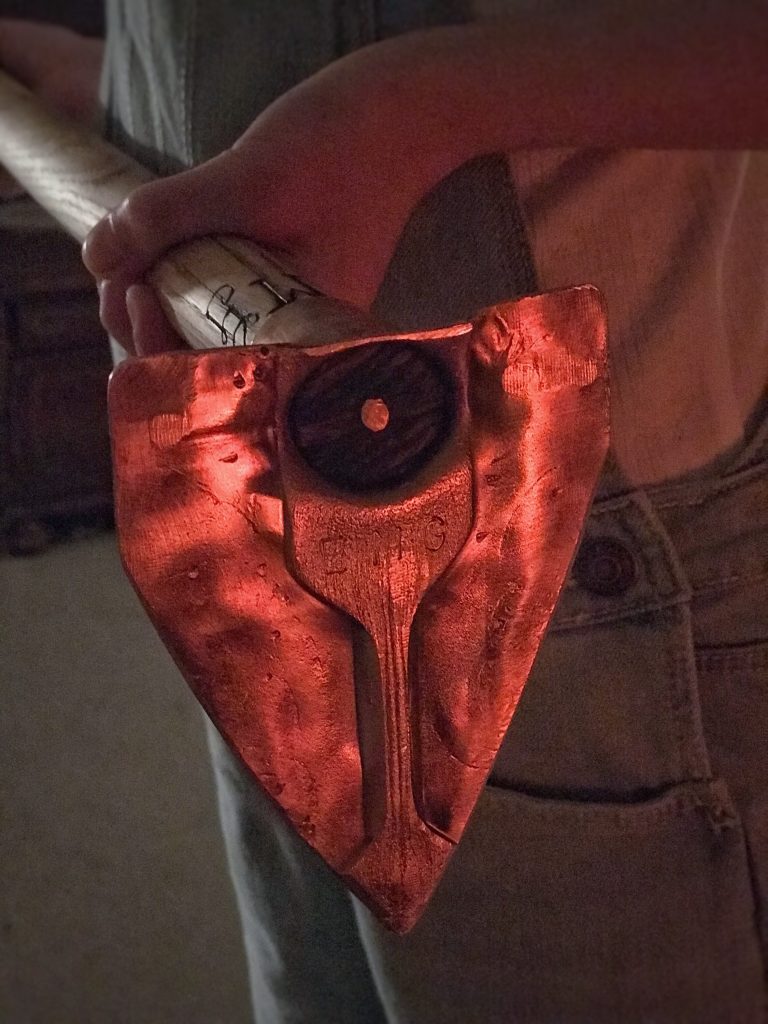
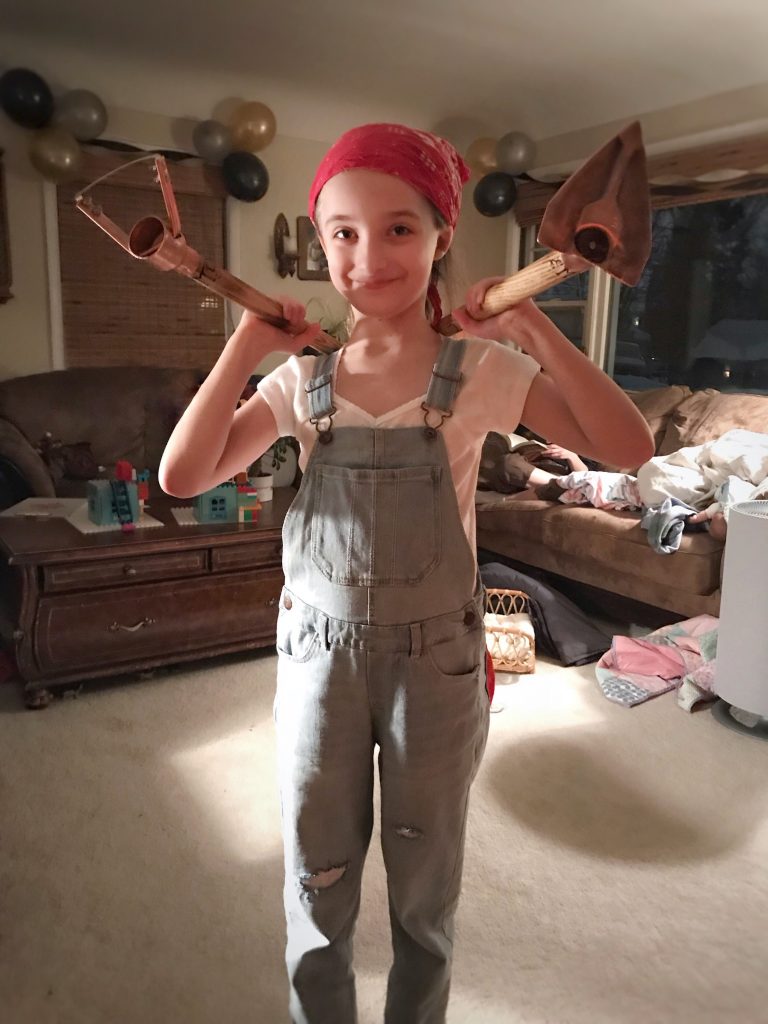
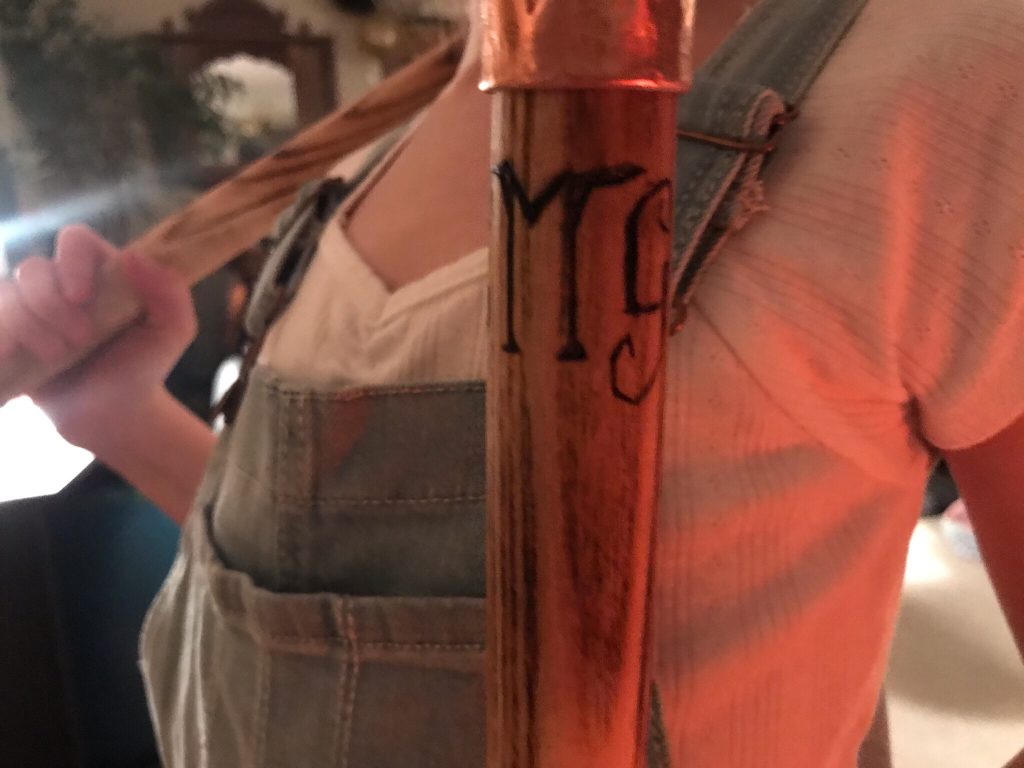
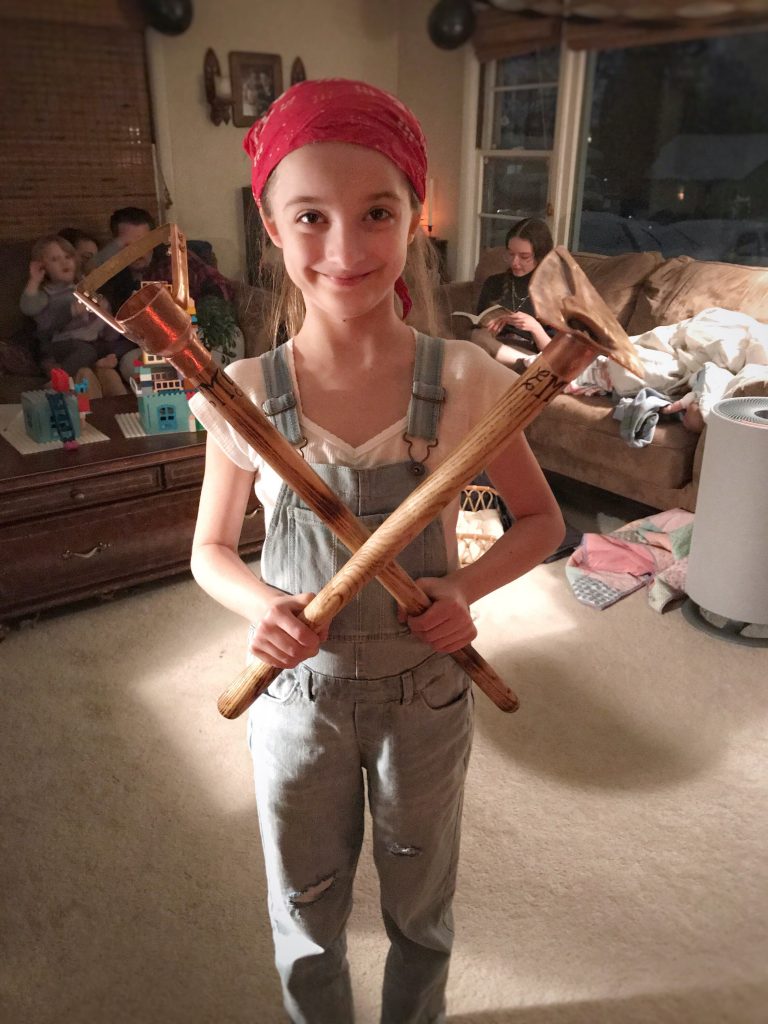
The Bears need copper tools to make their gardens flourish. Many tools were forged out of that treasure trove of leftovers, and we’ve had to buy most of this year’s supply to keep up with demand.
The first trowel had to go to Topher as a tribute to the legend for the inspiration, of course. Unfortunately, the prices of components prohibit keeping costs as low as we’ve wanted. We still keep it near cost for our Bear families, and thanks to them and the grace of God, we’ve grown in skill and productivity.
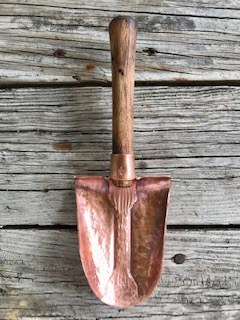
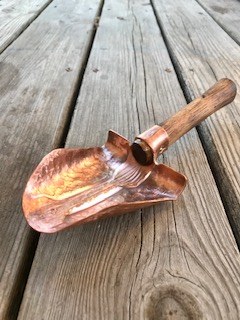
Now my hobby pays for itself, and a bit left over for the bee’s new boxes and some fresh paint this season.
Bee Alchemy helped me turn copper into liquid gold…
It was great meeting so many of you at the Festival!
God bless.
-

 Just Crushing2 weeks ago
Just Crushing2 weeks agoChristopher Gardner Completes First Dome Framing Project in Missouri: Exclusive Interview
-

 Just Crushing2 months ago
Just Crushing2 months agoBeartaria Ozark Campground Launches Community Forum!
-

 Just Crushing2 months ago
Just Crushing2 months agoMap it! – Discover Beartarians Living, Working, and Crushing Near You!
-

 Just Crushing2 months ago
Just Crushing2 months agoWhy Do We Feel So Free?
-

 Lifestyle2 months ago
Lifestyle2 months agoReconnect and Rejoice: Beartaria Times Weekly Challenge
-

 Reports2 months ago
Reports2 months agoReport: EF-1 Tornado Touches Down In The Ozarks
-

 Business2 months ago
Business2 months ago3000 Members In Our Business Group!: This Week On Our Community App!
-

 Wellness2 months ago
Wellness2 months agoBeartaria Times Member Shares History and Benefits of Haymaker’s Punch









